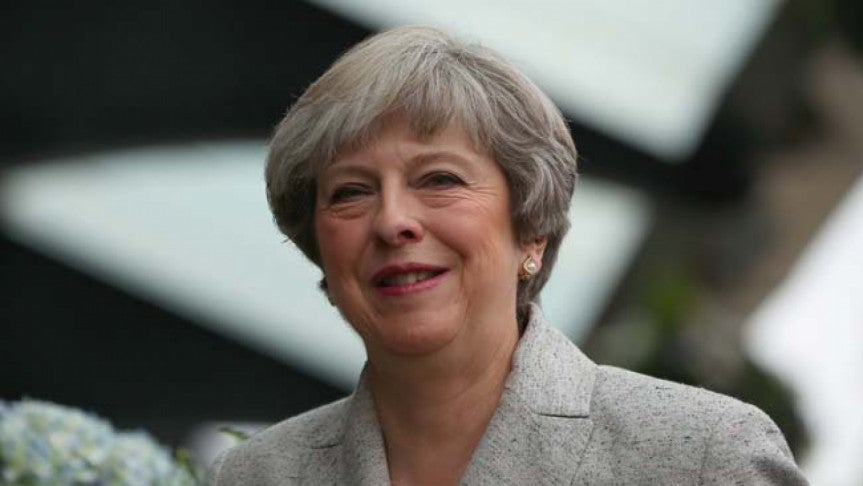Taking on critics, Britain's May vows to deliver policies and Brexit

Manchester, England: Apologising for a June election when she lost her Conservative Party's majority, Prime Minister Theresa May responded to her critics on Sunday by saying she had the right strategy to lead Britain and win a Brexit deal.
May, who has faced calls from within her party to step down, wants to use the Conservatives' annual conference in the northern English city of Manchester this week to try to reset her agenda, offering money to students and those people she once described as "just about managing" in Britain.
In an interview with BBC television, she played down the rifts among top ministers, saying they were united on their programme and more importantly Brexit. That came a day after foreign minister Boris Johnson, perhaps May's biggest rival, set out four personal red lines in the complex talks with the EU.
"We've listened to the message that came from that election. But I've been very clear, I called the election, I led the campaign, I take my responsibility and I'm sorry that some very good members of parliament lost their seats," May said in an appeal to those party members still angry over the vote.
"What I have is a cabinet that is united in the mission of this government ... and agreed on the approach that we took in Florence," May said about a speech she made in Italy last month to try to kick-start Brexit talks that had all but stalled.
"Boris is absolutely behind the Florence speech and the line that we have taken."
Divisions in her cabinet have broken out into the open, with ministers using the British media to air their differences on not only Brexit, but the government's approach to austerity - with many in the ruling party concerned about the growing appeal for the main opposition Labour Party.
After ministers agreed to seek a transition period following Britain's departure from the EU in March 2019, Johnson said on the eve of the conference that this should last for two years at most; that Britain should not accept new EU or European Court of Justice rulings during transition; must not make payments for single market access when the transition ends; and should not agree to shadow EU regulations to gain access.
WEAKENED
Following a Labour conference last week that struck a triumphant tone, May hopes to fire up thousands of Conservative members who feel let down by what some describe as an awful election campaign, when their leader was dubbed "the Maybot" for her repetition of catchphrases.
May is now dependent on a small Northern Irish party to be sure of passing legislation in parliament, and opinion polls indicate Labour is a growing threat, persuading rivals in the party not to try to topple her quite yet.
Before the conference, she unveiled new policies to extend a programme to help people buy their own homes and a freeze in student tuition fees to try to win back younger people, who have flocked to support Labour leader Jeremy Corbyn.
But despite pledging to spend billions of pounds more, May will have to step carefully to avoid widening divisions in her party, with vocal pro-Brexit supporters fearful she is going off course in the EU talks.
In a message to them, she said the government was working on plans should it be impossible to agree a Brexit deal. "Government departments are looking to see what changes are needed, what we need to put in place."
Her ally and effective deputy, Damian Green, said he was convinced she could lead the Conservative Party into the next election in 2022 but she will have a lot to prove and may struggle to win over voters, who have seen wages stagnate for nearly a decade as prices rise.
"If you run any organisation ... and something goes monumentally wrong, as did the election ... then the buck does have to stop with that individual," said Grant Shapps, former Conservative Party chairman.
"The reality is, every serious person knows, of course she can't lead us into the next election."

 Reuters
Reuters




